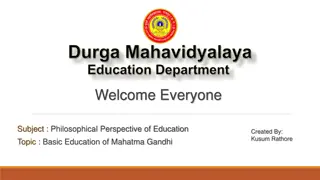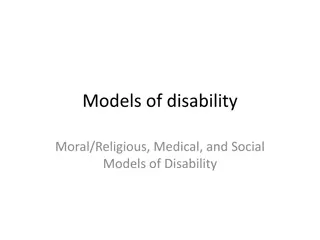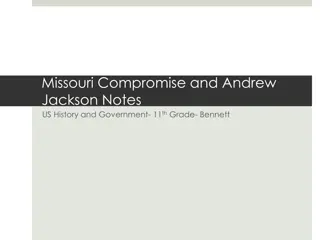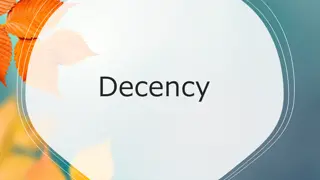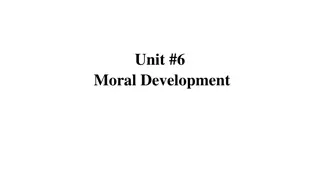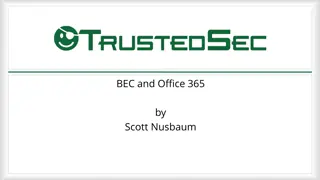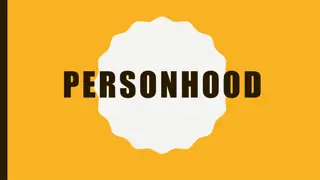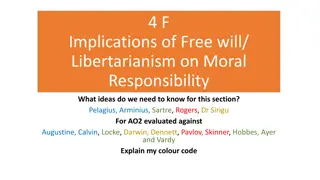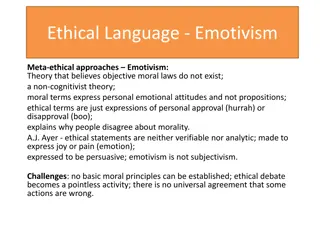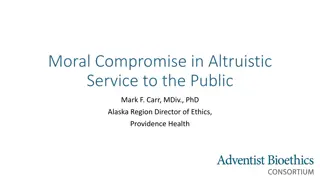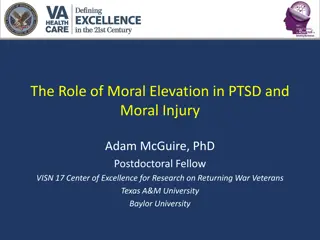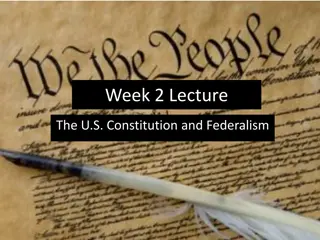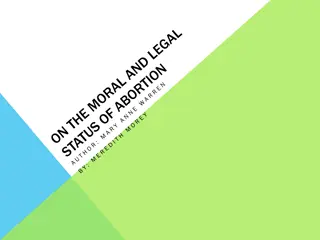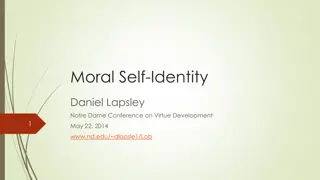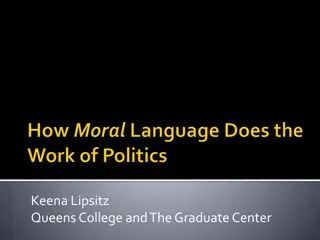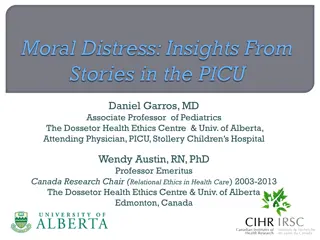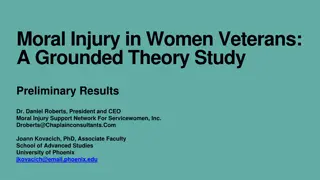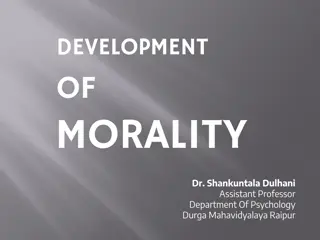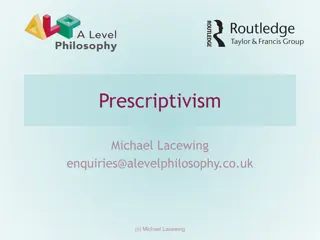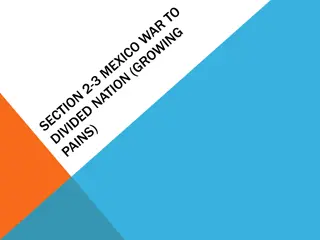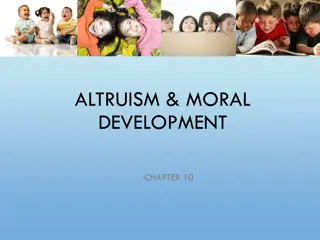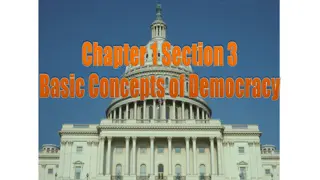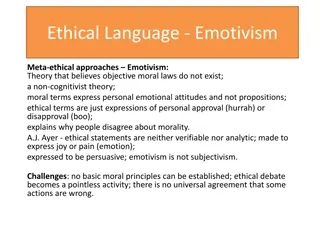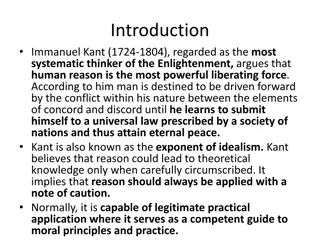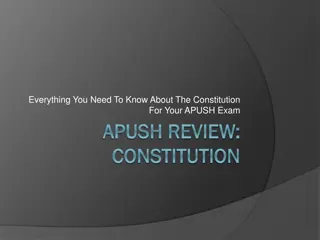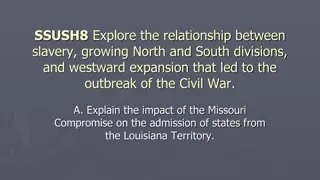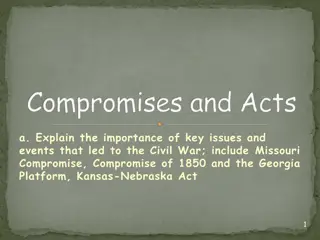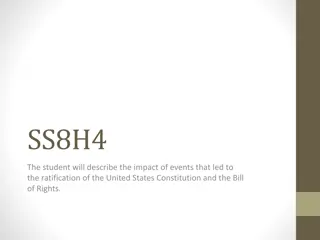Uncovering the Violent History of Capitalistic Enclosures
Explore the historical context of capitalist enclosures, their violent impacts on peasants, and the moral justifications used to conceal these atrocities. Delve into how economic narratives created moral bubbles to justify violent acts, as examined through the lens of Marx's analysis. Unveil the par
1 views • 11 slides
Durga Mahavidyalaya
Education is viewed as the acquisition of knowledge, skills, beliefs, and moral habits. Mahatma Gandhi introduced his Basic Education concept emphasizing free and compulsory education, mother tongue instruction, craft-centered learning, moral education, and character building. The curriculum include
0 views • 6 slides
Understanding Models of Disability: Moral, Medical, and Social Perspectives
The concept of disability is explored through moral/religious, medical, and social models. Impairment refers to a loss or abnormality in structure or function, while disability is a restriction in performing activities. The discussion also delves into the significance of person-first language and th
1 views • 35 slides
The Missouri Compromise and Andrew Jackson in US History and Government - 11th Grade Notes
Explore the Missouri Compromise and its impact on the issue of slavery and westward expansion, along with Andrew Jackson's role in American history. Learn about the dilemma faced by Congress in admitting Maine and Missouri as states, the terms of the compromise, and the South's response to the balan
1 views • 32 slides
Cultivating Decency and Moral Excellence in Daily Life
Embrace a life of decency and moral refinement through moderation, purity, and vigilance. Uphold virtues of modesty, temperance, and clean-mindedness in all aspects of existence, fostering an environment of respect and dignity. Strive to elevate your character towards the divine, embodying qualities
0 views • 18 slides
Understanding Kohlberg's Stages of Moral Development
Kohlberg's stages of moral development, built upon Piaget's psychological theory, outline six developmental stages of moral reasoning, with each stage offering a higher level of response to moral dilemmas. Kohlberg focused on justice in moral development and emphasized the importance of how individu
0 views • 19 slides
Understanding Moral Development and Moral Reasoning
Moral development involves an individual's sense of right and wrong, influenced by family, school, friends, and societal environment. Children learn moral concepts from interactions with parents, teachers, peers, and society, shaping their understanding of good and bad. Additionally, moral reasoning
0 views • 13 slides
Business Email Compromise (BEC) Overview
Explore the ins and outs of Business Email Compromise (BEC) - from common attacks and end goals to ways to secure Office 365 with multi-factor authentication and audit logging. Understand who is affected by BEC and discover methods to detect and mitigate this type of scam targeting companies.
0 views • 20 slides
Understanding Personhood: Philosophical Perspectives on Moral Consideration
Exploring the concept of personhood involves delving into what it means to be part of a moral community and deserving of moral consideration. Various criteria, from genetic to cognitive and social, are discussed, shedding light on the complex debates surrounding animal rights, abortion, euthanasia,
0 views • 10 slides
Moral Responsibility and Free Will Implications in a Contemporary Context
This text delves into the implications of free will and libertarianism on moral responsibility, examining the ideas of various philosophers and thinkers such as Pelagius, Arminius, Sartre, and more. It explores the concepts of moral agency, determinism, normative ethics, religious beliefs, and the c
5 views • 12 slides
Understanding Emotivism in Ethical Philosophy
Emotivism is a meta-ethical theory that rejects objective moral laws, instead positing that moral terms express personal emotional attitudes, not universal truths. Influenced by A.J. Ayer and rejecting naturalism, this theory suggests that ethical statements are not objective propositions but rather
0 views • 28 slides
Moral Compromise in Altruistic Service: Navigating Healthcare Ethics
Altruism in healthcare raises dilemmas of moral compromise, as faith-based providers balance societal norms with personal convictions. The call to be altruistic like Christ conflicts with legal and medical standards, prompting reflection on conscience and professional obligations.
0 views • 8 slides
Key Figures and Views on the 1850 Compromise
Explore the key figures involved in the 1850 Compromise, including Henry Clay, Daniel Webster, Stephen Douglas, Millard Fillmore, William Seward, Zachary Taylor, John Calhoun, and Jefferson Davis. Understand their roles, views, actions, and quotes during this critical time in American history, with
0 views • 6 slides
Challenges and Opportunities of Moral Revolution in Indonesia
The need for a moral revolution in Indonesia to address societal issues like corruption, conflict, and intolerance. Contrasting mental and moral revolutions, the focus is on behavior change to build a humane society with healthy moral values. Initiatives and discussions highlight the urgency of tran
0 views • 13 slides
Understanding Moral Elevation in PTSD and Moral Injury
The research by Dr. Adam McGuire explores the role of moral elevation in PTSD and moral injury, emphasizing how witnessing virtuous behaviors triggers emotional and physical responses leading to a desire for imitating virtuous acts. By integrating prosocial emotions into trauma treatment, the positi
0 views • 13 slides
The Evolution of U.S. Government: From Declaration of Independence to Constitution
The journey from the Declaration of Independence in 1776 to the Constitutional Convention in 1787 marked a crucial phase in American history. Beginning with the assertion of unalienable rights to the creation of a more effective and legitimate government through the Great Compromise, this period sha
0 views • 17 slides
Understanding Humanity and Moral Community in the Context of Abortion Ethics
Exploring the complex ethical considerations surrounding abortion, this discussion delves into determining the humanity of a being, defining the moral community based on traits of personhood, fetal development, and the right to life. The arguments include the morality of abortion, the definition of
0 views • 9 slides
Challenges to Moral Anti-Realism: Objections and Responses
The article explores objections to moral anti-realism, including moral nihilism, condemning immorality, and the notion of moral progress in the absence of moral reality. It addresses concerns about the justification for interfering with others' behavior, the relationship between moral beliefs and ob
0 views • 6 slides
Understanding Moral Self-Identity Development
Situating moral self-identity within ethical theory and developmental psychology, this overview explores the centrality of morality within the self-concept. It discusses the chronic accessibility of moral schemas, the importance of strong evaluation in moral behavior, and the connection between mora
0 views • 33 slides
Understanding Moral and Constitutional Values in Relation to Judiciary
Explore the concepts of moral values and constitutional values, emphasizing their importance in decision-making processes and societal norms. Discover the stages of moral development and delve into constitutional values such as sovereignty, socialism, secularism, democracy, justice, liberty, equalit
0 views • 9 slides
Analysis of Moral Language in Political Communication
Explore how Republican and Democratic elites use distinctive moral language and its impact on voters in the context of the 2012 election data. Discover the application of Moral Foundations Theory in understanding political differences in the United States and how moral intuitions influence public op
0 views • 13 slides
The Influence of Disgust on Moral Behavior in Psychological Research
Explore the impact of disgust on moral behavior through various studies, including moral dilemmas and criteria for moral judgment. Research delves into how disgust affects decision-making processes related to moral dilemmas and helping behavior. Discover the connection between physical disgust and i
0 views • 16 slides
Understanding Moral Distress in Healthcare
This content discusses the concept of moral distress in healthcare, defined as the pain and anguish experienced when one knows the right thing to do but faces internal or external barriers preventing action. It explores the implications of moral distress on healthcare practitioners and emphasizes th
0 views • 25 slides
Insights on Moral Injury Among Women Veterans: Preliminary Study Findings
Preliminary results from a grounded theory study on moral injury in U.S. women veterans reveal themes such as sexual assault, hostile work environments, and more. Participants shared their experiences, highlighting the nature of moral injury they faced, distinguishing between various forms of discri
0 views • 21 slides
Understanding Moral Development: Insights and Perspectives
Morality is the belief in right behavior accepted by society. It involves moral behavior, feelings, and judgments. Moral development evolves from childhood to adulthood, influenced by experiences and challenges. Freud's id, ego, and superego theory and Skinner's behaviorism contribute to our underst
0 views • 12 slides
Exploring Moral Judgments and Prescriptive Meaning in Ethics
This content delves into non-cognitivism, Hare’s prescriptivism, and moral anti-realism to understand what we do when making moral judgments. It discusses prescriptive meaning, the concept of good, and how moral language guides actions. The objections raised regarding moral language's functions, p
0 views • 9 slides
Tensions and Compromises in US History
The content covers key events in US history such as the Missouri Compromise, Mexican-American War, Compromise of 1850, and notable figures like John C. Calhoun and Daniel Webster. It highlights the debates and compromises surrounding slavery, territorial disputes, and the balance of power between fr
0 views • 18 slides
Exploring Conflict and Compromise in History Through National History Day 2018
National History Day 2018 focuses on the theme of Conflict & Compromise in History, encouraging students to delve into topics such as failed compromises leading to revolutions, the Vietnam Generation, and conflicts like the Troubles in Ireland. Through research, students will explore historical cont
0 views • 18 slides
Understanding Altruism and Moral Development Theories
Explore the components of morality, theories of moral development by prominent psychologists like Piaget and Kohlberg, and the stages of moral development in individuals. Learn about moral affect, reasoning, and behavior as integral aspects shaping one's ethical framework and decision-making process
0 views • 40 slides
Key Principles of American Democracy and Social Contract Theory
The basic notions of American democracy emphasize fundamental worth, equality, majority rule with minority rights, compromise, and individual freedom. These principles can be upheld through a social contract, which may require individuals to fulfill obligations for the welfare of society. While equa
0 views • 9 slides
Friedrich Nietzsche's Genealogy of Morals: Uncovering the Evolution of Moral Values
Friedrich Nietzsche critiques traditional philosophy for overlooking the historical development of moral concepts. He argues that moral judgments were initially based on strength and power, later evolving into the dichotomy of master and slave morality. By tracing the genealogy of moral terms, Nietz
0 views • 10 slides
Multichannel EEG Compression Using COMPROMISE Study
A study on multichannel EEG compression using COMPROMISE by Duc Thien Pham, Josef Kohout, Ivana Kolingerova, Pavel Nejdar from the Department of Computer Science and Engineering, Faculty of Applied Sciences, University of West Bohemia. The study covers datasets, methods, and discussions related to E
0 views • 12 slides
Understanding Emotivism: A Non-Cognitivist Theory in Ethics
Emotivism is a meta-ethical theory that posits the absence of objective moral laws, suggesting moral terms express personal emotional attitudes rather than propositions. Influenced by philosophers like A.J. Ayer and Hume, it challenges the existence of basic moral principles and universal agreement
0 views • 23 slides
Understanding Antebellum Georgia: Causes of Secession and Compromises
Explore the political, economic, and social differences between the North and South in Antebellum Georgia, leading to the conflict of secession. Learn about key events like the Missouri Compromise, States' Rights and Nullification, and the Compromise of 1850 shaping the path to the Civil War. Unders
0 views • 15 slides
Kant's Moral Philosophy: Reason, Freedom, and the State
Immanuel Kant, a prominent Enlightenment thinker, emphasizes the liberating power of human reason in guiding individuals towards moral principles and practices. Kant's moral philosophy centers on treating each person as an end-in-itself, driven by the good will informed by reason. His concept of mor
0 views • 14 slides
Understanding the Constitution for Your APUSH Exam: Key Points & Compromises
The Constitution was born out of the need to address the weaknesses of the Articles of Confederation. Key compromises like the Great Compromise and the 3/5 Compromise shaped its structure. Issues such as a weak central government and economic challenges were tackled through the ratification process.
0 views • 8 slides
The Impact of the Missouri Compromise on State Admissions from Louisiana Territory
The Missouri Compromise of 1820 resolved tensions over slavery by admitting Maine as a free state and Missouri as a slave state. It banned slavery above the 36.30 N latitude in the Louisiana Purchase except for Missouri. This compromise aimed to balance the number of slave and free states in the Uni
0 views • 9 slides
Key Compromises and Events Leading to the Civil War
The Civil War was influenced by key compromises and events such as the Missouri Compromise, Compromise of 1850, Georgia Platform, and Kansas-Nebraska Act. Tensions arose due to the issue of slavery expansion and the balance between free and slave states. The population distribution between the North
0 views • 19 slides
Forms of Moral Reasoning and Ethics in Decision-Making
Explore the main forms of moral reasoning in ethical decision-making, including virtue ethics, deontological reasoning, and teleological reasoning. Understand the importance of developing ethical virtues and principles in guiding behavior. Delve into examples of reasoning from virtue and deontologic
0 views • 28 slides
The Impact of Georgia's Role in the Constitutional Convention of 1787
Georgia played a significant role in the Constitutional Convention of 1787, influencing the Three-Fifths Compromise and the Great Compromise. The involvement of Georgian delegate Abraham Baldwin led to the bicameral legislative branch of the government. The writings of William Pierce offer valuable
0 views • 16 slides

